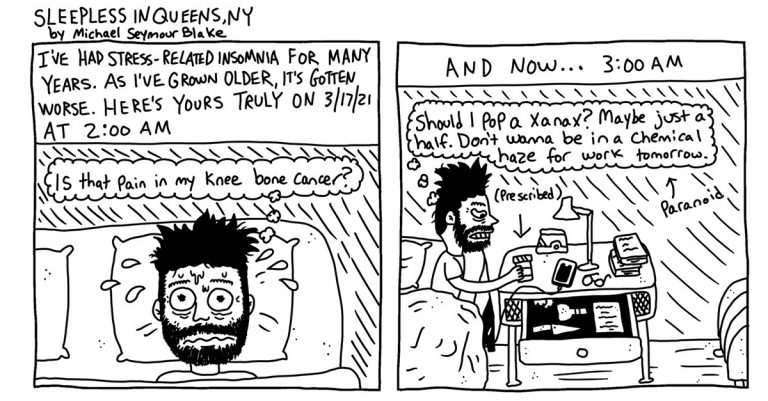
Archives

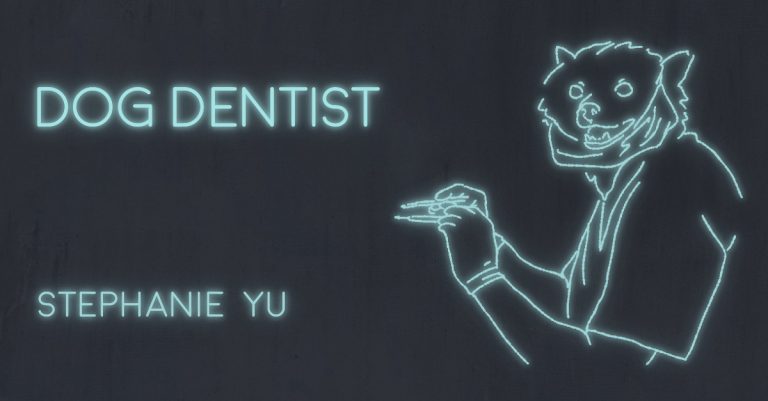
DOG DENTIST by Stephanie Yu
Dog Dentist comes home, takes off his shoes, puts his feet up on the table, and says in a voice too loud, “Man my feet are B-A-R-K-I-N-G, if you know what I mean!” He laughs uproariously to himself. A joke intended only for one. I’m fixing up his favorite: meatloaf and mash. After a day of grinding down dog teeth, he’s only in the mood for food that is barely reconstituted. My meatloaf is a special recipe that’s super moist. More “fudgey” than “cakey” so the enamel faces zero resistance on the way down. I can tell that sometimes Dog
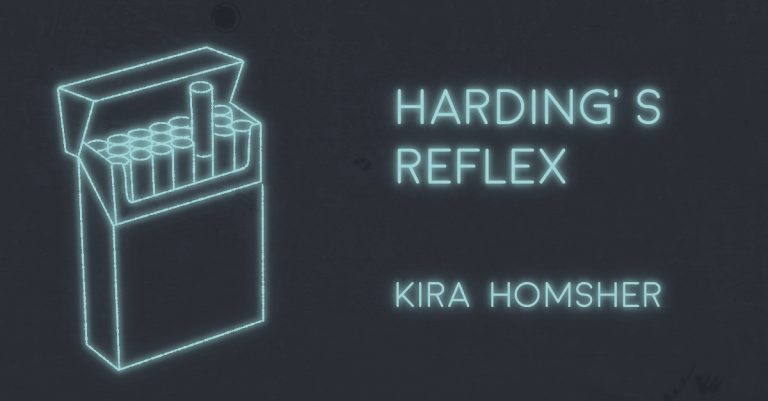
HARDING’S REFLEX by Kira Homsher
It’s an involuntary reflex, like how looking at the sun can make some people sneeze. Whenever Harding drives past a 7-Eleven, he has to turn around and buy a pack of cigarettes. To be clear, he is not a smoker. He buys a cheap pack of whatever color looks most appealing in the moment, regardless of brand, then smokes exactly one cigarette in the parking lot before stuffing the pack in the glove compartment and driving to his destination. He particularly likes packs in yellow. And sea-foam green, because they look clean and soapy. If he had to explain it,
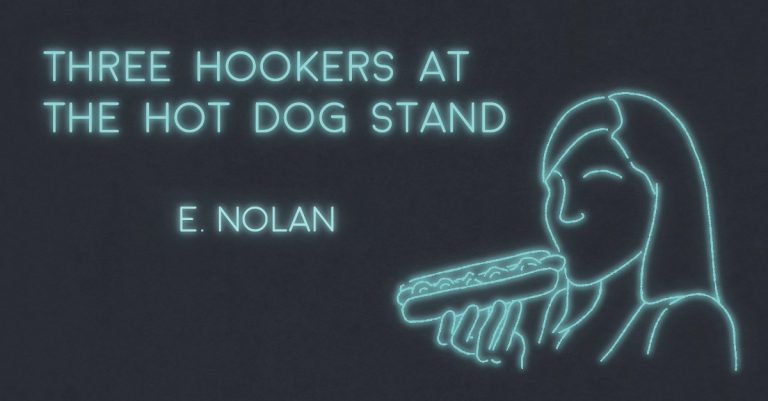
THREE HOOKERS AT THE HOT DOG STAND by E. Nolan
This guy, Bobby, called asking for money. He was with three hookers at the hot dog stand and they needed to be paid. He had enough to buy them each a hot dog, but that would only hold them off for so long. Soon they were going to find out that he was broke. The skinny one was almost done with hers, he was telling me, and, lowering his voice to a whisper, he said he knew she wasn’t going to ask for another one. She ate as if she had other things on her mind, like where’s my goddamn
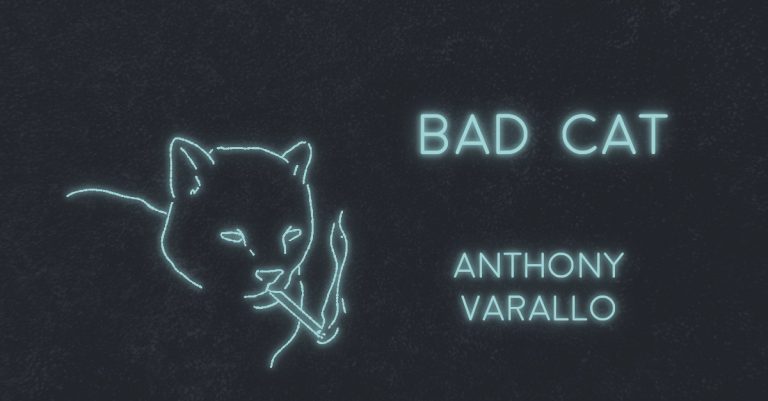
BAD CAT by Anthony Varallo
Yesterday I met the bad cat. He was lying on our neighbor’s driveway, sunning himself in the last of the day’s warmth. He had gray fur, slightly mottled with black, and white paws. His eyes were closed, restful. When my family and I walked past, the cat yawned and stretched his tongue the way cats sometimes do. The cat blinked at us for a moment, curiously—pleasantly, I thought. “Here kitty-kitty!” I said. “Psst-psst!” “Dad,” my daughter said, “don’t do that.” “Do what?” I said. “Cats love that sound.” “Please, Dad,” my daughter said. “It’s embarrassing.” “Plus,” my son said, “I
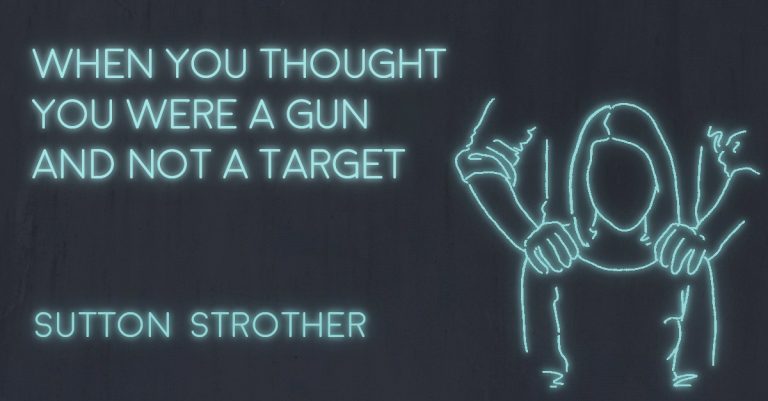
WHEN YOU THOUGHT YOU WERE A GUN AND NOT A TARGET by Sutton Strother
He’s the only other person you know who loves David Bowie. Not like your friends tolerate David Bowie for your sake or how your mom only knows the radio hits. He knows all the albums you talk about, every deep cut. “Modern Love” is his favorite Bowie song (killer drums, he says right before the first verse kicks in), so on days when there’s a test in his class you listen to it while you dress for school. It reminds you not to hate him, no matter how difficult he makes the questions. There’s power in the not-hating. And when
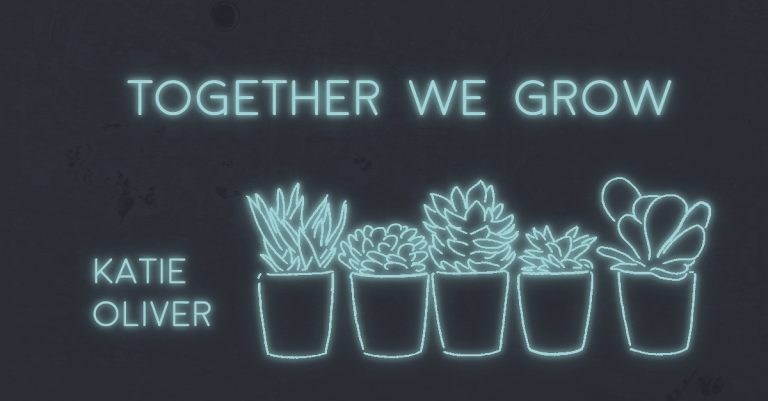
TOGETHER WE GROW by Katie Oliver
My boyfriend is a plant enthusiast: the more exotic the better. Old man’s beard, elk horn, fishbone. The bedroom is particularly full of them. They hang from curtain poles, draping down like Rapunzel’s hair. Distressingly phallic cacti loiter in corners; succulents take up space where they shouldn’t. Cacti are a type of succulent, he tells me. Whatever, I reply. You’re succulent, he says, and bites my neck. I roll my eyes. I go along with it, because it’s easier. When I get back from work, more seem to have appeared. Did you buy more plants? No, he says, flipping through
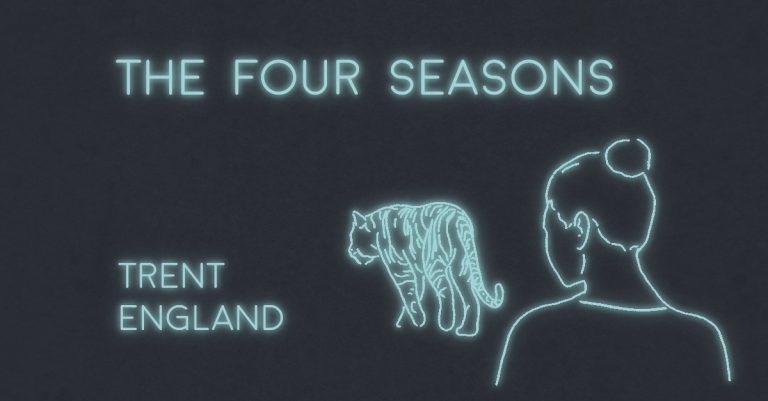
THE FOUR SEASONS by Trent England
She was sixty-nine, he was seventy. In the kitchen she baked two halves of an apple sprinkled with cinnamon. He drank iced coffee and did his Sean Connery impression. She pulled down a shoebox from a shelf in the closet and read her old journals. He took photos of their Pontiac and tapped on his phone and in a few minutes it was officially for sale, online, a part of their history up for grabs. She got a root canal that cost more than three mortgage payments, back when they had a mortgage. He bought a new phone that cost
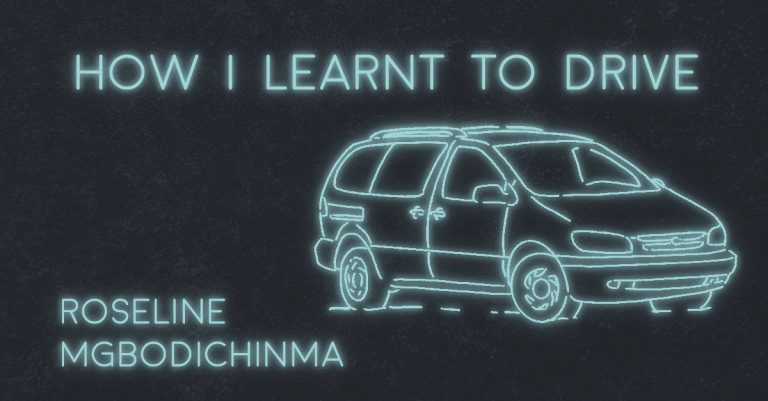
HOW I LEARNT TO DRIVE by Roseline Mgbodichinma
Sometimes brown girls can wear black. Not the colour, but a mood, a presence, a halo. I hold my aunt’s hand as she struggles with the chain. I want to tell her there’s no use, it can’t cage her spirit, but I stop myself. The Ward smells of grudges and longing. What is madness, if not a pile of lost love and mercy? There is something about blue that’s retrograde. It’s the colour of sky fading into evening, the colour of hospital bedsheets the severe cases lie on. Scratch on the walls suggest a previous occupant might have had claws.
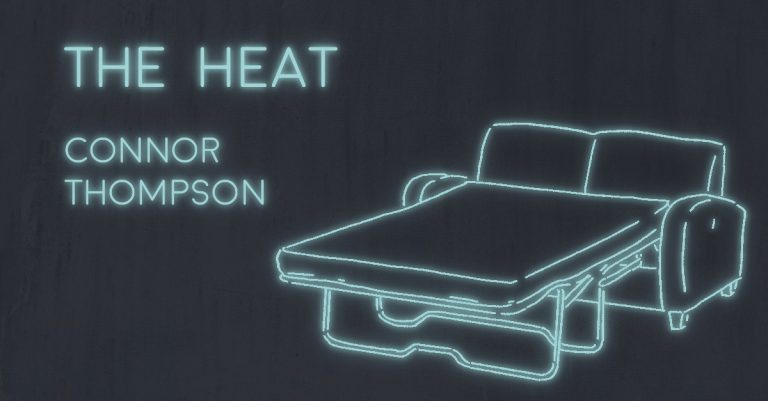
THE HEAT by Connor Thompson
Because of the heat, she decides to sleep downstairs. “This old townhouse funnels the stuff upwards like acid reflux,” she says. She slips from the sheets, props the standing fan under her arm. It’s fine by him; he relishes in spreading out on the bed without her. (Starfishing, she calls it.) He listens to her footsteps recede on the stairs and unfurls his limbs to the four corners of the mattress. Above him the ceiling fan carves circles in the air, striving to please. Two days ago an ambulance came down their street at an un-ambulance-y pace and pulled its
